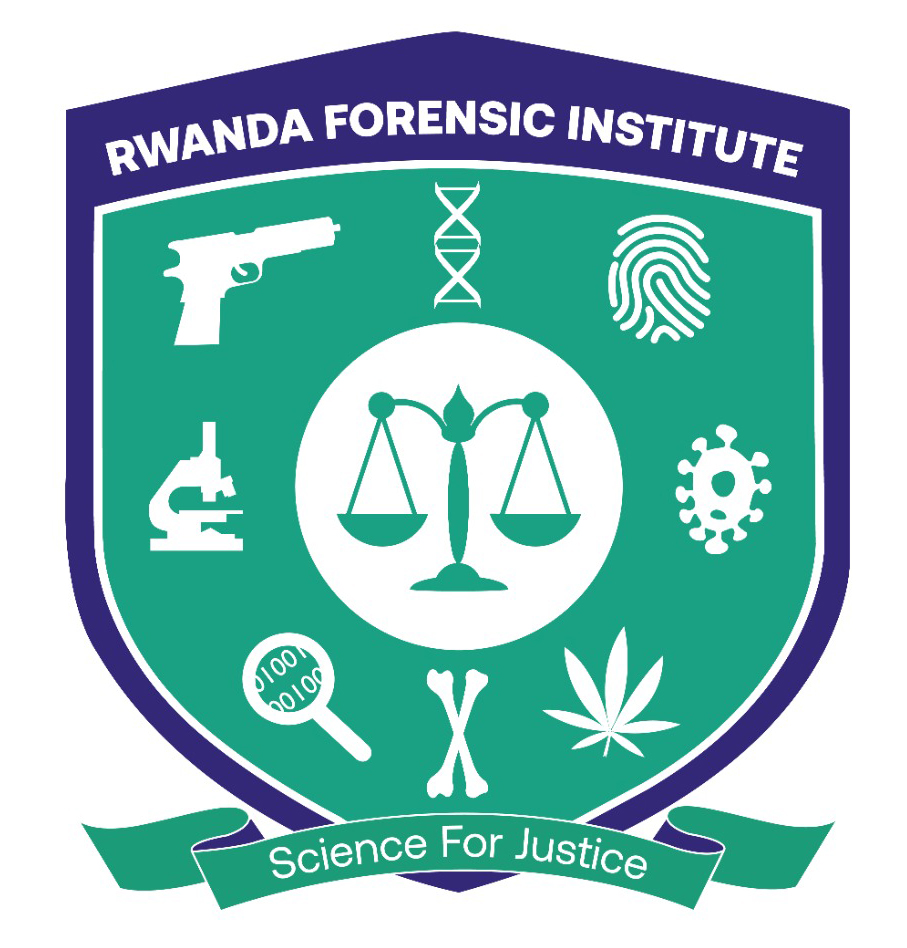
Established in 2016 as the Rwanda Forensic Laboratory (RFL) and now renamed the Rwanda Forensic Institute (RFI), RFI is the sole provider of forensics service to law enforcement agencies in Rwanda and is rapidly becoming an increasingly prominent forensic service provider in the region.
After their recent attendance at the recent 23rd Triennial Meeting of the International Association of Forensic Sciences in Sydney, we spoke to RFI about their operations and mandate to build and develop an internationally recognized forensic laboratory system.
What can you tell us (in general) about RFI and its operations in Rwanda?
The RFI was established to meet the evolving needs for fair justice administration in Rwanda.
Recognizing the importance of a state-of-the-art laboratory and specialized forensic scientists, the Government of Rwanda invested significantly from 2011 onwards. In 2016, it became the Rwanda Forensic Laboratory (RFL) and then the Rwanda Forensic Institute (RFI).
With a mission to provide scientific analysis of evidence for judicial purposes, the RFI caters to both local (Public & Private Institutions, NGOs and Individuals) and international needs, reflecting its commitment to enhancing forensic capabilities in Rwanda as well as in the region as an independent institution to ensure public trust.
RFI’s activities include:
- DNA Services (paternity testing, extended family relationship, biological traces, bones DNA, mass victim identification, etc.)
- Microbiology (Food microbiology, etc.)
- Toxicology and Blood Alcohol (narcotic drugs and psychotropic substances, methanol, ethanol, etc.)
- Seized Drugs and Chemistry (drugs trafficking, pharmaceuticals, pesticides, fire starters and fire debris, alcoholic beverages, etc.)
- Questioned Document (handwriting, signatures, stamps, official documents, bank notes, identity documents, academic documents, etc.)
- Fingerprints (latent prints, palmprints, footprints, face recognition, Iris identification, etc.)
- Digital Forensics (computers, mobile devices, social networks, databases, IoT, data recovery, etc.)
- Multimedia Forensics (analysis of audio, video, images, etc.)
- Ballistics and Tool marks (firearm, bullets, cartridge case, scene of crime tools, etc.)
- Clinical Medicine (battery assaults, accidents, etc.)
- Forensic Pathology (autopsy, anthropology, odontology, etc.)
- Training and Research (capacity building of law enforcement agencies, judicial bodies, medical staff, etc. as well as conducting research on complex cases, etc.)
Tell us about your specific responsibilities as a forensic institute
RFI is tasked with a comprehensive set of responsibilities aligned with its mission to enhance judicial processes through scientific analysis.
These responsibilities include:
- Collecting, packaging, transporting, receiving, storing, and analysing evidence from crime scenes.
- Conducting scientific analyses for judicial purposes, covering a range of test items such as biological samples, chemical substances, documents, biometrics, weapons, electronic evidence, etc.
- Issuing of certificates of analysis results.
- Maintaining relevant data in accordance with applicable laws.
- Engaging in research and training activities to promote the development of forensic practices.
What can you tell us about your specific forensic services? For example – Forensic Toxicology
RFI offers a range of specialized forensic services. Among these services is forensic toxicology and blood alcohol.
In the forensic toxicology and blood alcohol lab at RFI, the chain of custody is a critical component to ensure the integrity and admissibility of evidence. This comprehensive documentation ensures that the evidence remains secure and uncontaminated throughout the entire analytical process. It also provides a transparent and traceable record that can be crucial in legal proceedings.
To streamline operations and enhance efficiency, RFI utilizes a sophisticated Laboratory Information Management System (LIMS) and automation technologies. The LIMS manages and tracks the entire workflow, from the initial client request to the final reporting stage. Automation is employed in various stages of the analysis, such as utilizing advanced analytical techniques.
How do you believe ISO Standards and accreditation play a role in the work you do
RFI places a paramount emphasis on adherence to international standards and accreditation processes. The institute’s dedication to adhering to ISO standards not only elevates the reliability of its scientific analyses but also ensures trust in the validity of its findings both within Rwanda and on the international stage.
Our involvement in proficiency testing also reflects the RFI’s commitment to continuous improvement and adherence to the highest standards in forensic science. By consistently participating in such assessments, the RFI not only demonstrates its dedication to maintaining excellence but also establishes a robust foundation for ongoing advancements in its forensic capabilities, ultimately contributing to the institute’s reputation for quality and reliability in the field.
How do you see RFI working in conjunction with accreditation bodies such as NATA and what are the benefits?
Through ongoing engagement with accreditation bodies, the RFI aligns its operations with internationally recognized benchmarks, ensuring that its forensic processes adhere to stringent quality standards.
The collaboration involves:
- A comprehensive evaluation of RFI’s practices by accreditation bodies,
- Fostering a continuous improvement cycle.
The benefits of such collaboration include:
- Enhancing global credibility
- Aligning with established standards through Quality Assurance
- Conducting regular quality assessments for Continuous Improvement
- Providing external validation of the legal admissibility on RFI’s forensic reports.
- Facilitates international collaboration and partnerships engaging in joint ventures, information exchange, and collaborations with other forensic institutions, fostering a network for shared knowledge and advancements in forensic practices.
- Enhances client confidence in RFI’s services.
- Access on a platform of a competitive edge in the field of forensic science
- Reinforcing RFI’s dedication to ethical and professional standards.
We thank RFI for their comprehensive overview and look forward to a closer working relationship.
Visit their website: Rwanda Forensic Institute: Home (rfi.gov.rw)
